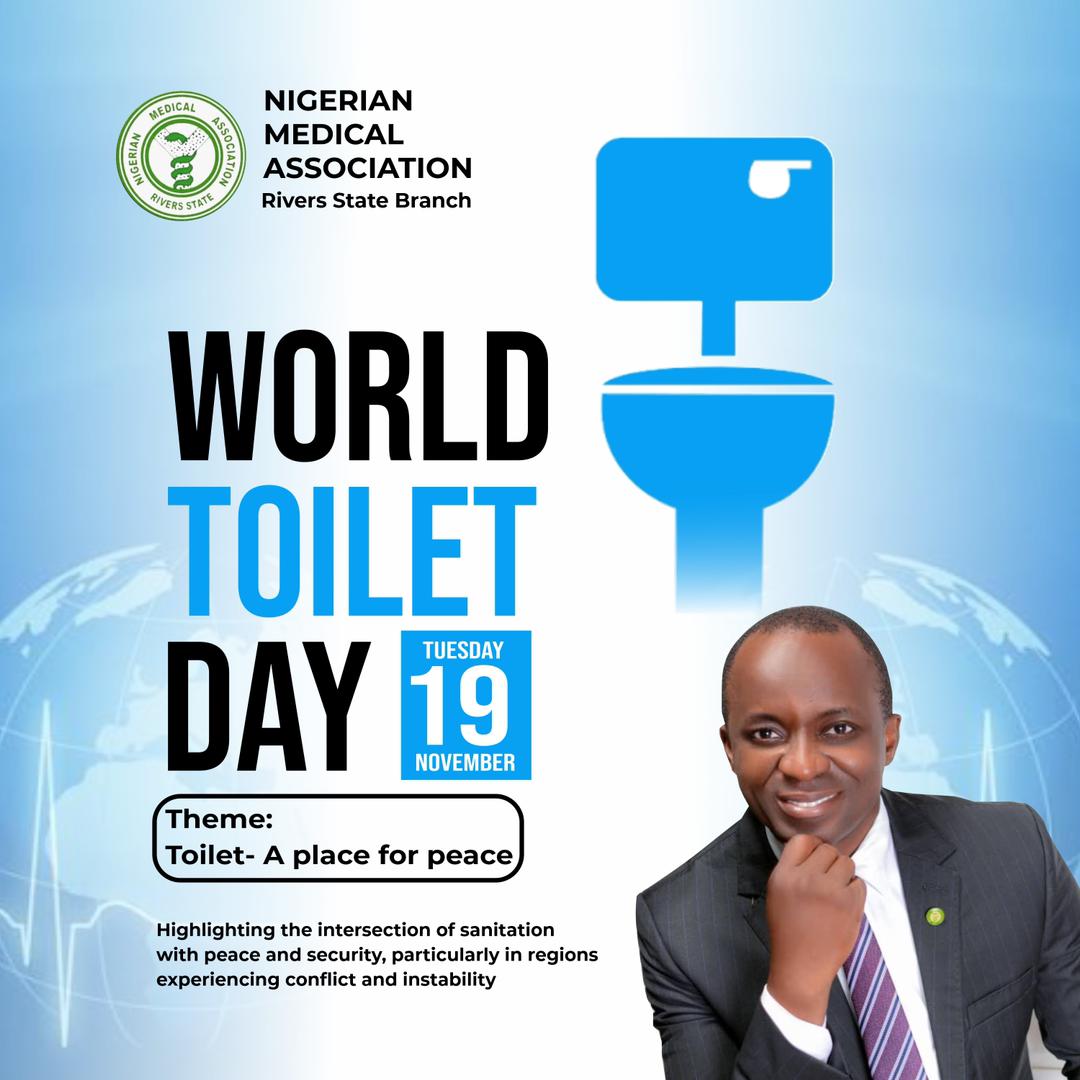The Chairman of the NMA Rivers Dr Diamond Tamunokuro on behalf of the SOC and SEC Commemorate World Toilet Day, a day set aside each year to raise awareness about the global sanitation crisis and to promote sustainable sanitation solutions.
The Day was Established by the United Nations in 2013, it highlights the importance of access to clean and safe toilets for all people, as well as the impact of inadequate sanitation on health, dignity, and the environment.
The day aims to draw attention to the fact that billions of people around the world still lack access to proper sanitation facilities, which can lead to serious health issues, including the spread of diseases like Cholera.
Sustainable sanitation solutions are approaches that aim to provide safe, reliable, and environmentally friendly sanitation services while considering economic, social, and health aspects.
Here are some key sustainable sanitation solutions:
Ecological Sanitation (EcoSan):
•Focuses on closing the nutrient loop by treating human waste as a resource. This approach often involves composting toilets that convert waste into compost, which can be safely used to enrich soil.
Decentralized Wastewater Treatment Systems (DEWATS):
•These systems treat wastewater close to where it is generated, reducing the need for extensive sewer networks. They can include constructed wetlands, anaerobic digesters, and biofilters.
Waterless Toilets:
Technologies such as dry toilets or composting toilets that do not require water for flushing can significantly reduce water consumption and are particularly useful in areas with limited water resources.
Biogas Toilets:
•These toilets treat human waste anaerobically to produce biogas, which can be used for cooking or lighting, while also generating organic fertilizer as a byproduct.
Smart Sanitation Technologies:
•Innovations such as sensor-based systems for monitoring sanitation facilities can help manage resources more efficiently and improve service delivery.
Community-Led Total Sanitation (CLTS):
•A participatory approach that mobilizes communities to improve their sanitation practices and eliminate open defecation through awareness and collective action.
Integrated Urban Water Management:
•This approach emphasizes the interconnection between water supply, sanitation, and stormwater management, promoting solutions that enhance the sustainability of urban water systems.
Behavior Change Campaigns:
•Educating communities about hygiene practices, the importance of sanitation, and the proper use of sanitation facilities can lead to lasting improvements in health and sanitation.
Policy and Regulatory Frameworks:
•Governments can create supportive policies and regulations that promote sustainable sanitation practices, encourage investment in sanitation infrastructure, and ensure equitable access to sanitation services.
Public-Private Partnerships:
•Collaborations between government entities and private companies can lead to the development of innovative sanitation solutions and improve service delivery in underserved areas.
By implementing these sustainable sanitation solutions, communities can improve public health, protect the environment, and promote social equity, ultimately contributing to the achievement of the United Nations Sustainable Development Goals (SDGs), particularly Goal 6, which aims to ensure the availability and sustainable management of water and sanitation for all.
This is a Call to action on the importance of investing in sanitation infrastructure and promoting hygiene education to ensure that everyone has access to safe and clean toilets.
Dr Siene Oluwatosin Orogun
PRO
NMA Rivers
18-11-2024

